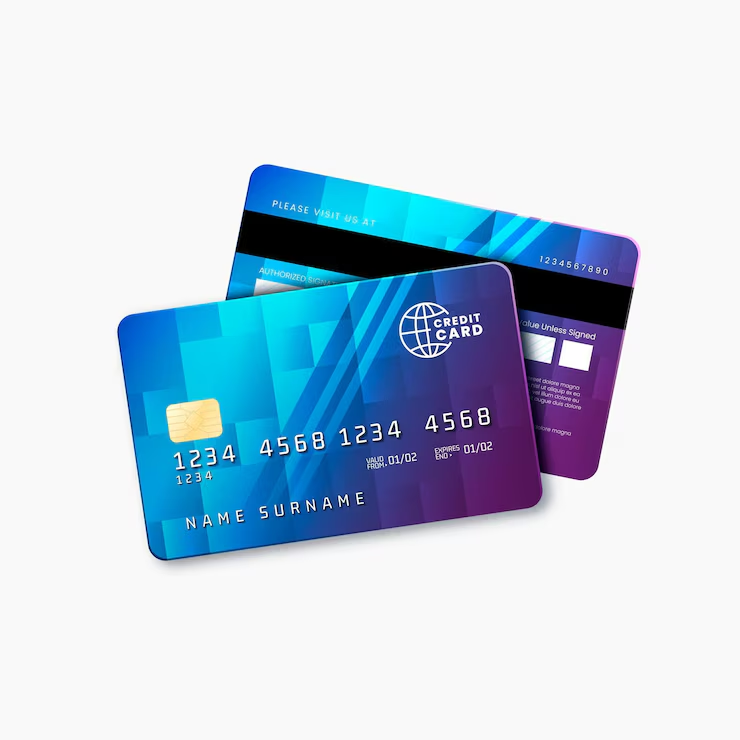Credit Card Advantages and Disadvantages:
Introduction
Credit card ownership is now an integral part of any lifestyle in a high-octane, digitized world. It is one of the most convenient payment methods, balancing safety with financial elasticity. This article discusses the advantages and drawbacks of credit cards and provides some visibility on their usability and possible pitfalls. People widely benefited by these factors will surely decide wisely about their finances and take full utilization of credit card use.
What is A Credit Card?
A credit card is plastic or electronic payment card given by a financial institution for a person that generally allows the person to borrow funds until a particular limit to carry out purchases of goods, pay for services, and/or meet an emergency. These funds must be repaid by the cardholder, usually with interest, unless the debt is paid within a certain time grace period.
How Credit Cards Differ from Other Payment Means
Unlike debit cards, which debit the amount from an associated bank account; credit cards are lines of credit. Credit cards can build credit history and determine whether someone is entitled to various rewards. Additionally, credit cards provide strong fraud protection, making it safer for people who often shop online. 
Advantages of Credit Cards
1. Convenience and Ease of Use
These cards serve as a substitute to carrying around big piles of cash and are the exclusive means of effecting payment without physical demonstration-transfer. While being at least accepted all over the world, credit cards have proved to be handy for traveling in foreign countries.
2. Benefits and Cashback Particle Reward Programs
Most credit cards offer incentive programs to their customers, which is an exciting feature as far as credit Reward programs are one of the most attractive features when it comes to credit cards. Most of the credit cards give cash back, points, or travel rewards, each to its own for shopping; and a lot of them can be exchanged for tickets, hotel stays, or merchandise.
For example: Chase Sapphire Preferred® Card: Popular for travel rewards.
American Express Blue Cash Everyday® Card: Great cash back on daily purchases.
Discover it® Cash Back: Offers rotating cashback categories.
The rewards from such utilize programs can be adeptly leveraged toward maximum benefit in terms of finance at spending.
3. Establish and Improve Your Credit History
Using cards wisely will enable anyone to build and even improve their credit scores. Credit history is mainly determined by the following: Payment history, credit utilization ratio, and the length of credit history. A good credit score is a must-have for:
- Getting loans from firms at amazing interest rates.
- Getting approvals for higher credit limits.
- Qualifying for premium financial products.
4. Interest-free period
It is the rule of credit cards to have an interest-free grace period, during which all purchases do not incur interest as long as the entire amount is paid back. The interest-free period shall allow the user to have small expenses without liability for interest charges. To fully benefit from this facility, the cardholder needs to:
- Know the start and end dates of the billing cycle.
- Avoid transferring balances to the following billing period.
5. Financial aids in emergencies
That is, under unforeseen situations, such as medical emergencies or urgent repairs, credit cards can provide immediate financial relief to its account holder such as having the ability to access money immediately without going through myriad loan approval processes.
6. Insurance and Fraud Protection
Credit cards come with the most advanced features of security, which include:
- An EMV chip for a more secured transaction.
- Zero liability protection, which protects you from all unauthorized transactions.
- Possibility of chargebacks to enable users to dispute fraudulent or erroneous ones.
- These features make the use of credit card payment systems safer than cash or debit card system payments, especially with regard to online purchases.
Disadvantages of Credit Cards
While credit cards offer numerous benefits, they also come with potential drawbacks that users must consider.
1. High-Interest Rates
Poor credit card trapping of high annual percentage rates that can fall between 15% to over 30% depending on the issuers and the creditworthiness of the user. Anytime a cardholder fails to completely pay the balance due within the due date, interest is charged on the unpaid amount and the debt blows up in no time. With all due respect, this compounding effect may affect a certain individual suffers over time in financial health and get trapped in a cycle of debt.
Impact on Long-Term Financial Health
Interest payments on high balances may limit disposable income, hinder savings, and make it difficult to qualify for other more favorable financial products such as lower-interest loans or mortgages. Interest charges also capture a part of the overall value of purchases made on credit.
2. Overspending Risks
Credit cards psychologically induce spending without immediate cash outflow, thus offering users great release into impulse buying. This is due to the perception of easy money and the temptation of getting some rewards points or cash back, which brainwash the cost over time when overspending occurs.
Examples of Impulsive Spending
Buying unnecessary luxury items during sales or promotions.
Getting too many subscriptions without accounting for the total.
With overspending comes a balance that goes beyond what one could normally pay back, made worse since it accrues interest.
3. Fees and Hidden Costs
Credit cards can bring along a plethora of charges, which you may not see immediately with expenses, for example:
- Annual Fees: There are a few superior credit cards that charge annual membership fees. This can range from $50 to a few hundred dollars.
- Late Payment Fees: If you miss the payment deadline, a hefty fine is almost certainly levied, usually about $25 or more.
- Over-Limit Fees: Exceeding your limit for credit use invites another charge.
How They Add to the Entire Cost
Such fees can obliterate the financial benefits associated with reward programs and raise the cost of using credit cards. For example, a cardholder who receives $200 in cashback rewards might forfeit as much as half of that amount in annual fees or penalties.
4. Damaging Your Credit Score
Credit cards will harmfully affect your credit score when damage occurs. Missed payments, high credit utilization ratios, or defaults are some of the leading causes that usually result in a decline in points.
Effects of Missed Payments
One late payment can take your credit score down by some points.
Repeated missed payments can soon create an account delinquency and collections. This would only serve to lower your worth in regard to credit activities.
Long-Term Impact
A bad credit score curbs financial opportunity such as loans, renting applications, and even in some households restricts the position to which a person can attain in employment. Rebuilding a damaged credit score can take years of discipline with money.
5. Fraud and Security Risks
Unfortunately, a credit card will not be completely protective against fraud, regardless of having excellent security provisions. Identity theft, scams, and unauthorized transactions are all still valid issues. Criminals, for example, might steal details from a card and use it for purchase; in the end, the biggest hassle would be left for the cardholder to deal with the issuer.
Preventive Tips against Risks
- Always maintain checking the statement for those unauthorized transactions.
- Enable transaction alerts through e-mail or SMS to make one track everything in real-time.
- Most preferably, have online transactions done using a virtual card number for safety purposes.
How to Use Credit Cards Wisely
1. Map Out a Financial Plan
Besides putting up a clear budget, proper planning to ensure that credit spending is not higher than the income would prevent over-spending. One could take advantage of several tools and techniques that keep the expenditure on check, like expense trackers or preferably budgeting applications.
2. On-time Payments
While the full amount is paid every month on time, that saves on interests, and it also helps build a good payment history. Automating payments would mitigate the risk of missing due dates.
3. The Most Suitable Card
There are many cards available nowadays. However, it is essential to choose the right card based on how the individual tends to spend. Some examples would be:
- Travelers would likely find air-mile cards and some travel benefits handy.
- Budget-conscious consumers will look for cards with low interest rates with no annual fees at all.
4.Monitoring the Statements
Monthly statements should be reviewed regularly because they help identify mistakes, fraudulent charges or hidden fees. Such deviations should then be reported to the issuing agency immediately to eliminate issues as quickly as possible.
Comparison: Credit Cards vs. Other Payment Methods
1. Credit Cards vs. Debit Cards
Key Differences
| Feature | Credit Cards | Debit Cards |
|---|---|---|
| Source of Funds | Borrowed funds from the card issuer | Direct withdrawal from linked bank account |
| Builds Credit History | Yes, when used responsibly | No |
| Spending Limit | Limited by credit limit | Limited by account balance |
| Risk of Overspending | Higher due to credit availability | Lower as it’s restricted to available funds |
| Fraud Protection | Extensive (e.g., zero liability) | Basic (protection limited to account funds) |
| Rewards and Perks | Yes (e.g., cashback, points, travel perks) | Minimal or none |
2. Credit Cards vs. Cash Payments
Key Differences
| Feature | Credit Cards | Cash Payments |
|---|---|---|
| Convenience | Extremely high; accepted worldwide | Limited to face-to-face transactions |
| Security | High (e.g., fraud protection, chargebacks) | Low (risk of loss or theft) |
| Rewards | Cashback, points, and other perks | None |
| Tracking Expenses | Easy through monthly statements | Difficult; requires manual tracking |
| Payment Flexibility | Allows delayed payment (with interest) | Immediate, no borrowing |
3. Credit Cards vs. Digital Wallets
Key Differences
| Feature | Credit Cards | Digital Wallets |
|---|---|---|
| Ease of Use | High, but requires card possession | Extremely high; only requires a smartphone |
| Fraud Protection | Strong, with zero liability policies | Strong, with encrypted transactions |
| Rewards Programs | Offers cashback, points, and other perks | Varies; depends on linked payment method |
| Acceptance | Widely accepted | Increasingly accepted, but still limited in some regions |
Conclusion: Credit Card Advantages and Disadvantages
While credit cards can be powerful tools for financial control when used responsibly, they also come with lots of disadvantages like high-interest rates, fees, and frauds. This means that they require careful handling to avoid falling under their pitfalls. The challenges can, however, be understood and counteracted with strategies such as timely payments and budget alignment, thus maximizing the benefits of credit cards while minimizing the risks.

